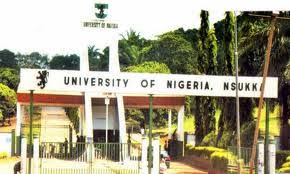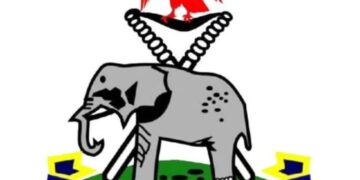Everybody seems to agree that the ongoing industrial action by the Academic Staff Union of Universities (ASUU) and her sister union has crippled the academic growth of students, however we also seems to have ignorantly forgotten that this strike has also the crippled medium and small scale and businesses that operate within the University premises.
Today, it is so pathetic that the entrepreneurs, transporters and other non ASUU or NASU workers are hard hit by the strikes which started on February 14, 2022 and is already in its fifth month. ASUU had been at loggerheads with the federal government over its refusal to honour the 2009 agreement it entered with the Union. The demands in the agreements included condition of service of varsity lecturers to be reviewed every five years, issue of salaries and allowances, revitalisation of public universities among other issues, University Transparency Accountability Solution and the inconsistencies in Integrated Payroll and Personnel Information System Payment.
It has been observed that most businesses in the campuses are suffering because students and staffs who patronise them are at home as a result of the strike. It is pitable that at the entrance of many universities which is usually crowded by vehicles and tricycle, have now been seen deserted. While some of the business owners have closed their shops, waiting for students to resume, others, especially transporters, abandoned their tricycles for farming and other activities in order to earn a living
No doubt, the current strike action by ASUU in Nigeria has affected this non ASUU/NASU sector of the economy that depend on the universities for survival, more especially the technological growth of the nation, the books and stationeries enterprises. This strike imposes cost on this special sector of the university and the entire economy. True, for the entire economy loss of productivity which affects Gross Domestic Product (GDP), constitutes the most significant quantitative cost to society. In the light of the aformentioned, this article shall look at 8 (eight) of this Non ASUU/NASU workers that has been affected by this strike economically.
FOOD VENDORS
Food vendors are one of the most important workers in the university campus. They ensure that students and lecturers who are their primary buyers get food at their desired time. Hence, following the strike, the business has not been as buoyant as it used to for the food vendors. While they was no strike, food vendors are one the richest people on campus, with the population of students patronising them. Now that there is strike, food vendors cook little or no food, and also take the food back home, since it was not finished during the course of the day. Some of these campus food vendors are now on the streets with alternative business.
CAMPUS TRANSIT DRIVERS

True, despite the strike, some staff and students still lives on campus, but despite this, the transportation business is close to been grounded on campus. When you get to the University Car Park today, you will find more vehicles than the people at these places. Students and staffs who are meant to patronize the transporters are at home, while the drivers are in school transiting little or no passengers. It is pathetic that many campus drivers are now at different bus stops and car parks boarding different passengers.
CYBERCAFE OPERATORS

As we all know that while the session is on, there will be need for for students, lecturers and staff of the University to use the cyber cafe for their assignments and other courses. They are expected to make use of the online facilities, print and make photocopy of documents. However, since the inception of the strike, cybercafe on campuses seems to be as silent as graveyards with little or no customers to patronize them. The economy of these operators have turn upside down as many of these operators have moved their business away from the school premises to different communities where competition are harder for them.
PROVISIONS SELLERS, AND OTHER SMALL BUSINESS OWNERS

Another category of affected workers are the provision sellers that one see around schoool faculties, departments or even school hostels. These small business owners thrive on the goods sold to students while session in school is still on. However, it has been terrible and frustrating for these business owners to survive without sales to students and staffs. Many of these business owners have been seen loitering around major roads, front of offices, companies in order to make their ends meet.
HOSTEL, DEPARTMENT, FACULTY AND OFFICE CLEANERS
While the school is in session, some set of workers ensure that the hostels of residence, department, the faculty and various offices are clean and useable. However, the strike action has hindered these people from performing their task, leaving them idle at home. Most of these workers will only get paid if their services are needed in school, but since the school hardly need their services now, most if these cleaners who are mostly women are on the streets striving with another business entirely.
HAIRSTYLISTS, PEDICURISTS AND MANICURISTS
Both students and staff are employers of hairstylists, as different students and staff use different stylist to help adore their hairs. Hence, since the strike, the hairstyling business has been tough for the barbers and hairdressers around the school premises. This also applies to the the manicure and pedicure business, as they have also suffered the same fate.
BOOKS AND STATIONERY SELLERS

One can’t be ignorant of the importance of books and stationery in school, as no student or staff can survive without the availability. However, the sellers of textbooks, notebooks and other stationery have been a victim of the strike. Sales of book now drag so slowly in the campus, as patronizers don’t come often. Hence, economy has been tough on the side of these people as much as their other counterparts.
EVENT CENTRES, RESTAURANT, CINEMA HOUSE OWNERS
Come to think of it, most of event Centres, restaurant, and cinema houses within and around the school premises have become shallow. These are places where students and staffs go to relax or enjoy themselves during session. However, the owners of these public places have also become sufferers of the strike, having little or no sales during this course.
The economy in the academic environment is revolving and once the major section is affected, every other sector is in pain.













